RSS Reader RSSGuard 4.2.7 includes feed suppression feature
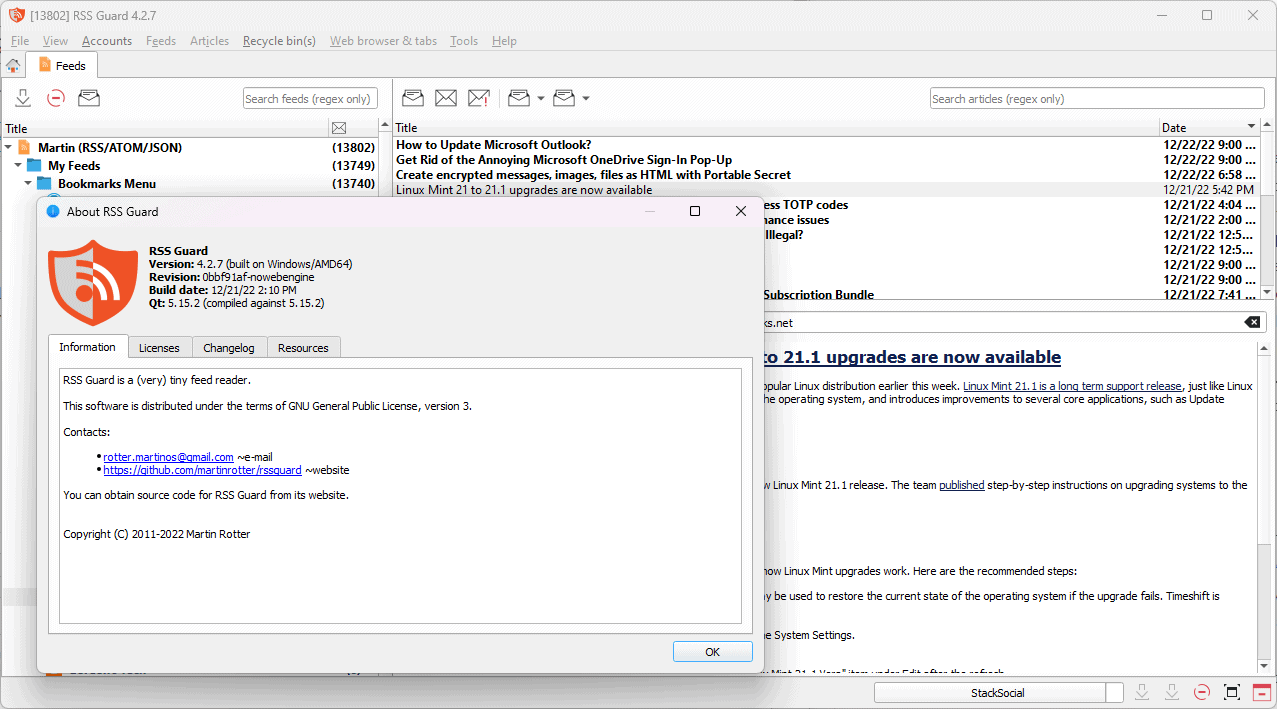
The developer of the open source RSS reader RSSGuard, Martin Rotter, has released a new update for the application. RSSGuard 4.2.7 includes several new features and improvements, including an ability to suppress feeds and change the user-agent HTTP header.
Our first review of RSSGuard dates back to 2014, but you may want to check out the 2022 review of RSSGuard instead, which is more up to date.
The app is open source, supports Windows, Mac and Linux, and updated regularly. The most recent update, to version 4.2.7, introduces new features. Actually, the updates were introduced in version 4.26, but the latest version is 4.2.7, which does not introduce any new features or changes according to the release notes.
RSSGuard 4.2.7
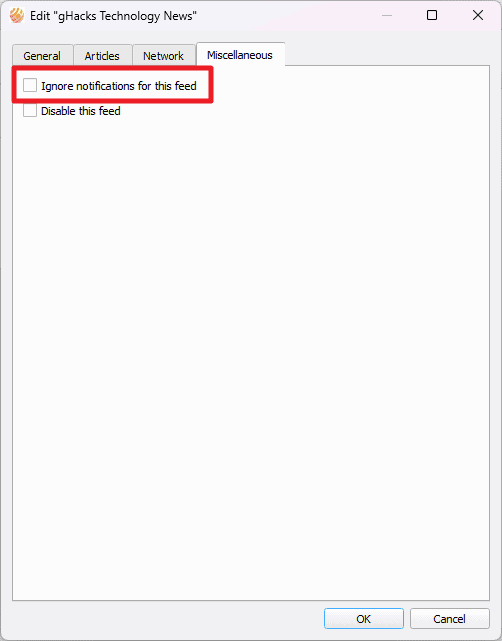
Feed suppression is one of the new features of RSSGuard. The main idea behind the feature is to disable notifications for select RSS feeds. Notifications need to be enabled in the interface under Tools > Settings > Notifications. To suppress notifications for specific feeds, right-click on the feed in the list of RSS feeds in the sidebar and select the edit option. Switch to Miscellaneous and there you find the new "Ignore notifications for this feed" option.
Suppressing feed notifications may be useful. I'm subscribed to the Ghacks Feed, but do not need notifications for articles published here. Similarly, I'm subscribed to several forums and news aggregators, which publish a lot throughout any given day.
RSSGuard 4.2.7 includes several other improvements. There is a new column available for the article lists that shows assigned labels. To activate it, or any of the other columns available, right-click on the main row of the article listing and select the columns that you want to display. You may add information about attachments, the read status, or the source to the listing.
Other new features include the ability to add a customizable skin color for feeds with new articles to better distinguish new from unread articles, the ability to run post-process scripts when importing OPML files, and to change the User-Agent HTTP header.
The release includes fixes, including one that addressed a crash and one that enables smooth scrolling by default. You may check out the full release notes on the project's GitHub repository.
Now You: which RSS feed reader do you use primarily?










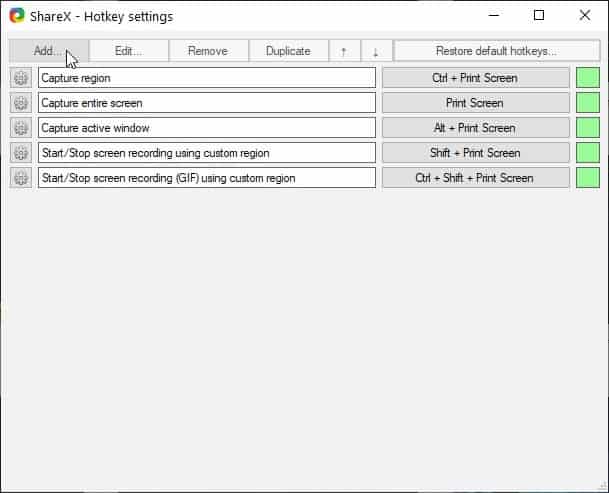
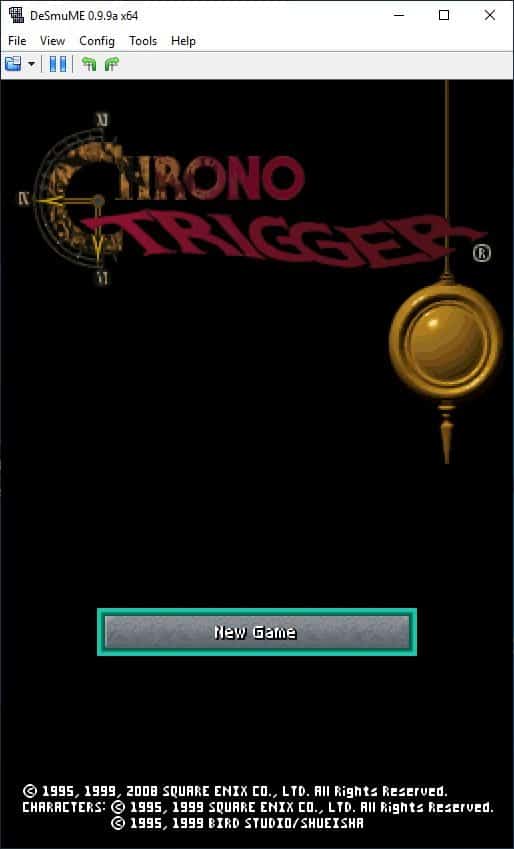
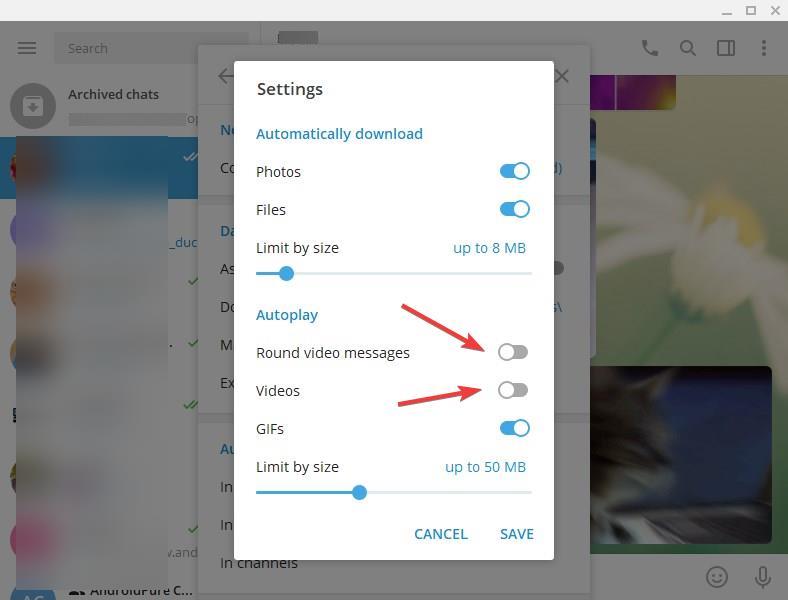











https://github.com/martinrotter/rssguard/releases
I tried rssguard-4.3.0 NoWebEngine-win7 and also v.4.3.1 both on Windows 7 Home Premium x64 SP1 but after importing opml of feeds output by QuiteRSS current version it wouldn’t download anything. Firewall checked OK.
Also had to do web searches first to figure out how to import opml which was not immediately intuitive. QuiteRSS’s procedure conversely is easy to find and execute.
Might try it on Windows 10 box when free; QuiteRSS tends to hang on certain feed sources presumably if the site ceritficates give it indigestion.
Feedly
QuiteRSS for primary and RSSGuard as a backup.
Quiterss is dying on linux since it relies on outdated dependancies (rolling releases are phasing it out i had to run it on wine… oh the irony).
InoReader free, with uBlock Origin to kill the ads
Inoreader Pro
Inoreader pro
Like the webfeeds when content annoyingly has no rss feed
Inoreader pro
> Now You: which RSS feed reader do you use primarily?
More than primarily, only : Feedbro as a Firefox extension.
+1 for Feedbro. It’s a very user-configurable RSS reader with a big feature set. I gave up using a stand-alone application (Liferea) after using Feedbro. Nice to have a customized feed reader that’s in browser tab, one less thing to have running on my computer.
Can you open all items in a new tab at the same time?
QuiteRSS for primary and RSSGuard as a backup.